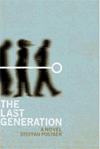No shoes, No shirt, No problem…
Somewhat unexpectedly, Chili’s bar and grill is going for the big branding idea with its new retro ad campaign from agency, Hill Holiday. I say “unexpectedly” because when it comes to advertising, chains like Chili’s, Fridays and the like usually default to food porn and price points vs. any sort of branding. For this reason alone, the effort here deserves props. I know from experience how hard it is to get marketers of “casual dining” to do anything exceptional.
But is Chillin’ Since ‘75 the right answer?
Let’s start with the obvious. I do “dig” the wordplay on the name and how that naturally “jives” with the “groovy vibe” of 1975. Moreover, one can easily accept the campaign’s mythology because of legitimate connections to the period. If you’re old enough to remember, or are a student of Americana, you know that as far as foodie culture went, in the 70’s, salad bars and hamburger joints were where it was at. During this time Lettuce Entertain You opened the first such joint in Chicago, RJ Grunts. In LA, Barney’s Beanery was gut filling rock stars and stoners with specialty burgers and chili. Jim Morrison got fat there. And who can forget Hamburger Hamlet? (Probably a lot of you but I’m trying to make a point.)
Chillin’ since ‘75 does make sense for the brand. The 70’s have aged well in our collected conscience and have about as good a chance of resonating with twenty-somethings as anything else. Perhaps even better. Beyond the fashion, there are definite similarities between the 70’s “Me-Generation” and the narcissistic current one. Do I even have to point them out?
Chili’s succeeds in creating a Boogie Nights atmosphere first and foremost by copping to the awesome tunage of the day. Hearing the opening chords to Foghat’s Slow Ride bring it all back, man. As does the washed out film and the gnarly casting. Granted, it’s not a difficult era to replicate but getting it wrong would have been a total fail. On that note I’m glad Chili’s paid for the real music and not some half-assed facsimile.
Hamburger Hippies…
Not to be a buzz kill but the commercials may actually go too far. “Heck, sometimes we didn’t even wear shirts!” Ew. Sweaty hippies making dinner is kind of a turn off. Still, you gotta give them credit for going all in. Another quibble: By 1975, the hippie culture had virtually expired, having been crushed by Altamont, Charles Manson and other factors. Punk rock, disco and cocaine were right around the corner. Chillin’ by any standard was over.
Full disclosure: I haven’t been to a Chili’s in many years. What I do recall of the place resembles little the hedonistic hamburger joint of these commercials. The last one I was in felt more like a box in a strip mall. Because it was. Can the chain get that loving feeling back? Possibly. In college a good friend of mine cooked burgers at Chili’s. He loved his weed and got a buzz on before every shift. He gave us freebies all the time. So, there’s that.
“When it’s people doing the right thing, they call it responsibility. When it’s an insurance company, they call it Liberty Mutual. Responsibility. What’s your policy?”
And so goes the copy in this feel-good campaign for Liberty Mutual done by Hill Holiday in Boston. The films show real people stopping what they’re doing in order to help others, one after another. Contributing to the good karma in our universe. Paying it forward, as it were. While this is hardly a new idea in our culture (the Judea-Christian belief system is based on it), it is striking sentiment for communications from a large multi-national. Let me rephrase that: Lot’s of companies talk about what nice companies they are but few endorse human kindness as an operating principle. Either way, the key to this thing working is whether consumers buy into it. If Joe America believes insurance companies are a soul-crushing matrix of liars and paperwork, he is not apt to appreciate the “do unto others” approach. Or, and this is what the marketing team at Liberty Mutual undoubtedly hopes, upon receiving these heartwarming messages, Joe America will soften to the company like cold butter on a hot muffin.
Either way, I admire this creative. By going back to biblical pretext (do unto others, etc), LM has actually modernized the rhetoric. “Like a good neighbor,” is an overt claim about State Farm’s personnel, as is the “Good Hands People” for Allstate. The LM films depict a succession of civilians doing good deeds without selfish motives. Which leads to more good karma and, well, the world gets better. By calling this behavior “responsibility” Liberty Mutual suffuses their strategy with a moral imperative. I’m curious what others think about this move. Are you impressed by it…or depressed?
Interestingly enough, in my new novel, The Happy Soul Industry God solicits an advertising agency to come up with concepts for marketing Heaven or, as the angelic brand manager in the story puts it: “goodness in all of its forms.” Kind of like the LM brief, isn’t it? In my book, “How are you?” becomes the organizing principle in a new campaign for Heaven. If people are honest in their answers, they realize something is missing in their lives and that something is God.
Examine the “How Are You?” blog at Happy Soul’s website. People are willing to unburden themselves online. To be rigorously honest. Maybe people are just as open to helping others as well, and not just friends and family. But “Everyone!” as Bono often exhorts in his famously uplifting concerts. Taken further, maybe we are all looking for a higher power (of our understanding) to help us on a daily basis. Could we, as a society, be dusting off our moral compasses? The Liberty Mutual campaign suggests as much. The Hill Holiday planner clearly saw something happening in the culture, to the consumer, which could alter the category. Paying it forward became a creative strategy.
There’s a great saying in recovery houses: If you want to improve your self-esteem, do estimable things. That’s what Liberty Mutual is telling to “do” in their commercials. Is that an appropriate strategy? A bigger question: If the quest for spirituality is becoming a strategic platform for advertisers is that exploitation or an example of doing the next right thing?





 The Happy Soul Industry
The Happy Soul Industry The Last Generation
The Last Generation